We spend a fair amount of time playing F-word bingo, marking our spaces with mini jelly beans, as well as going F-word fishing and sometimes just practicing our F-words all by themselves. No, this is not an R-rated post filled with vulgarity, but rather part of Treya’s recent speech therapy homework. Weekly, we’ve visited Ms. Jennifer for instruction, most recently with Treya’s “F” sound. After a couple of half hour sessions, Treya was able to finally put her top teeth on her bottom lip and blow air through to form that incredibly difficult sound. Up to that point all F words were pronounced with a D sound making frog...drog, family...damily and fishy...dishy. After six sessions Treya is now capable of breaking the word into parts - saying fff-ishy or fff-amily, but we are still working hard at grasping the concept of putting it all together as one word when speaking in sentences, which for her still come out as fDamily, fDarm, and fDlower.
To date, this has been the hardest sound to grasp. S came fairly quickly, as did T. What I can atest to, is changing a speech pattern after learning it another way is very hard to do. Can you imagine in every day conversation having to concentrate on where to put your teeth, your tongue, when to articulate and where to the blow air through your mouth for every word you utter? Sort of like how one starts to hyperventilate when they start to “think” about breathing. Sometimes, with the excitement of the activity at hand-for instance-trying to point out a passing butterfly before it flies out of sight, you can watch Treya’s face go from determination to defeat. You can just imagine in her head she is just saying, “Oh, to hell with it!” and she blurts out what she has to say her old way as her concentration breaks. Other times, she just sits silent, avoiding saying any of the words that contain sounds that we are working with trying to answer with a nod or shake of the head, all responses that require no sound. She is trying so incredibly hard at this, often times with success slow to come.
As Treya is attacking this most difficult task, so am I - the momma bear - who has had to go toe to toe with the insurance company, whom to this point is refusing to cover speech therapy for Treya unless it is the result of an injury and can be considered part of restoring speech or if the child was born with an abnormality or deformity directly related to speech. Everything was fine until our first statement finally arrived in the mail. Imagine our surprise when found we were being charged $760 an hour for this therapy rather than the $45 a half hour that I was quoted by the insurance companies online service estimator. Granted, the fine print said the fee may be slightly higher dependent on your actual policy. But $760 an hour? That is more than the hourly charge of her hand specialist and foot specialist combined. Yowza! With 6 sessions all ready under our belt that fee had mounted to a pretty hefty debt, that left unchecked could bankrupt us. It was the first time that I was faced with the cold reality that I could not continue to provide something for my child that professionals agreed was necessary. That hurt.
Six weeks of research later I can tell you that our health care system has failed my child. People are people, each with a specific set of circumstances that make us unique. We don’t fit into neat blocks of set criteria, labeled with a diagnosis code to “explain” our needs. For instance, Treya is a 315.31, which mean she has developmental delays in speech and language, but that label does not take into consideration the reasons for her delay. There is no code that takes into account that she had limited verbal stimulation as an infant, or that she was born with ABS and club feet, both conditions that over 90% of the time lead to speech delay, but to this point, have never been proven by an accredited scientific study. According to the insurance policy Treya’s code, because it includes the word “developmental” translates to “she will get better over time with treatment or without treatment”, wherein reality, the word “developmental” in her diagnosis code refers to the fact they are talking about a child rather than an adult. The specialists who have treated Treya have stated in her evaluation that her speech pattern is not indicative of the kinds of speech patterns they typically see in the English language, furthermore stating that by three years of age sound replacement begins to dissipate, but they have seen no evidence of this in Treya. Improving her speech without intervention, in their opinion is not likely. The kicker? These evaluations are NOT sent to the insurance company because they would require that someone read them and then dissect the information. The long and short of the situation is that the specialists know about my child and her needs, but the insurance company still considers her a 315.31 because the other speech related codes refer to neurological disorders, which we know she does not have.
Where do we go from here? Another kind of evaluation. Why? Because if we prove that she has a deficit in a total of two areas, (speech and something else) she will qualify for FREE speech therapy through the school system, even though she is only going into preschool - a fact that was never disclosed until now. With the end of the school year next week, the bad news is we have to wait to get this started until the beginning of the next school year, losing valuable time where speech is concerned. The good news, Treya’s speech therapist Ms. Jennifer is a kind and caring human being who has supplied us with a folder of homework, games, and activities to further Treyas study at home through the summer. You can bet that we will also be following up with the insurance commissioner.
In the end, Treya is Treya. My Treya. She is our lovable, funny, bossy, feisty, tender and sweet...nothing short of unique...jelly bean. She is definitely NOT your average 315.31!









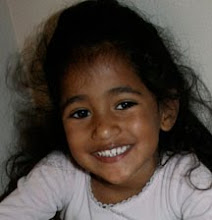
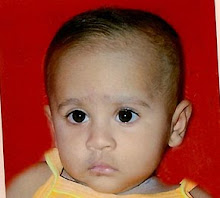

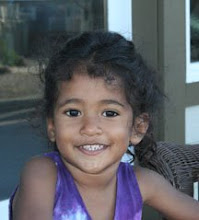
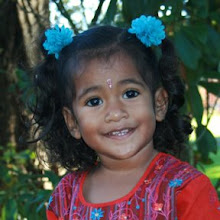
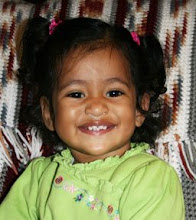




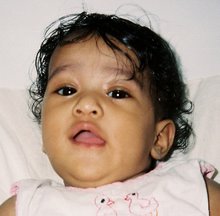
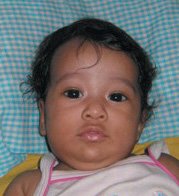
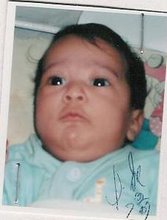
7 comments:
We had the same issue with our insurance company. OT was being billed under Developmental Delay, so they would not cover it. Had to change the code, they still balked, so OT billed Katie Beckett (you know, the one they are know denying him). It is a ridiculous, time consuming, maddening game. DSM-IV codes at work, and ICD-9 codes at home. I'm sick of it. You are right. Fail. Our kids deserve so much better.
Maddening is the word I was thinking too, and dehumanizing. Thanks for taking the time to document this . . . I will talk to our doctor when #4 comes home about not using the word "developmental" for areas where our child might need therapies. Many kudos to you for your perseverance with all those phone calls -- things like that are so frustrating, and it's clear that your focus is on helping Treya get what she needs.
Nancy
Oh! $760 an hour??!?
1) Why did I not go into speech therapy as a career?
2) I can think of a few choice words for Insurance Coverage Bingo.
Good thing you and Pat are such amazing parents who will follow through with the therapy over the summer. Insurance coverage or no, Treya hit the jackpot with you!
Karen
One last comment from the author...I failed to mention that the speech therapist and those involved in the actual evaluations and service had no idea how much was being billed for the service. They were equally as flabbergasted. They are further trying to have those charges reduced and have suggested financial aid offered through the hospital for cases like ours that have "fallen through the cracks".
Oh how frustrating! I am so sorry to hear, but glad you were able to find a way to get into free speech therapy with the school system!! What a blessing that would be-my fingers and toes are crossed for you all.
I went to speech therapy as a child and I remember how tough and frustrating it was to concentrate on trying to speak-but in the end, there is a deep pride from overcoming. Treya is amazing and will do GREAT at it :)
Just out of curiosity, what are the types of codes or key words I should use or should not use when seeking therapy help for child? I would have never thought of not using developmental in their medical description, so I want to know what words I should focus on using so drs. and insurance will be more apt to take it. I'll have to keep them stored in my back pocket for future reference! Thanks!!!
Can you file an appeal with your insurance company? I did this once with a rare condition (dermatological) that I had that responded to a therapy (phototherapy) that was considered "experimental"...it was a pain but ultimately a doc from the insurance co. talked with a doc from where I got treatment and they did cover it. Worth a shot, though - I agree - our insurance system (while I am grateful to have it), is a one-size-fits-all and...it doesn't.
Post a Comment